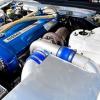Nytsky's Engine Build
Announcements
-
Similar Content
-
Latest Posts
-
Shimmed or shimless, still solid, no hydraulic pump up stuff.
-
By TurboTapin · Posted
Yea that's a fair assumption. I'm presuming they call them solid lifters as they have no moving parts like hydro lifters. -
By TurboTapin · Posted
I believe you're confusing WMI with water injection. Looking at that graph, the 93aki+WMI car is making more power than C16 race gas. Boost juice, which is what I also run, is Snow Performances 50/50 premix. -
By joshuaho96 · Posted
GCG is a good company, they're a major distributor for Garrett in Japan as well.
-





Recommended Posts
Create an account or sign in to comment
You need to be a member in order to leave a comment
Create an account
Sign up for a new account in our community. It's easy!
Register a new accountSign in
Already have an account? Sign in here.
Sign In Now